UNITAR Delivers 4th Course Discussing the QCPR: Examining Instruments in the Field
24 June 2016, New York, USA - The United Nations Institute for Training and Research's (UNITAR) New York Office facilitated Quadrennial Comprehensive Policy Review (QCPR) module 4 on 24 June 2016 at United 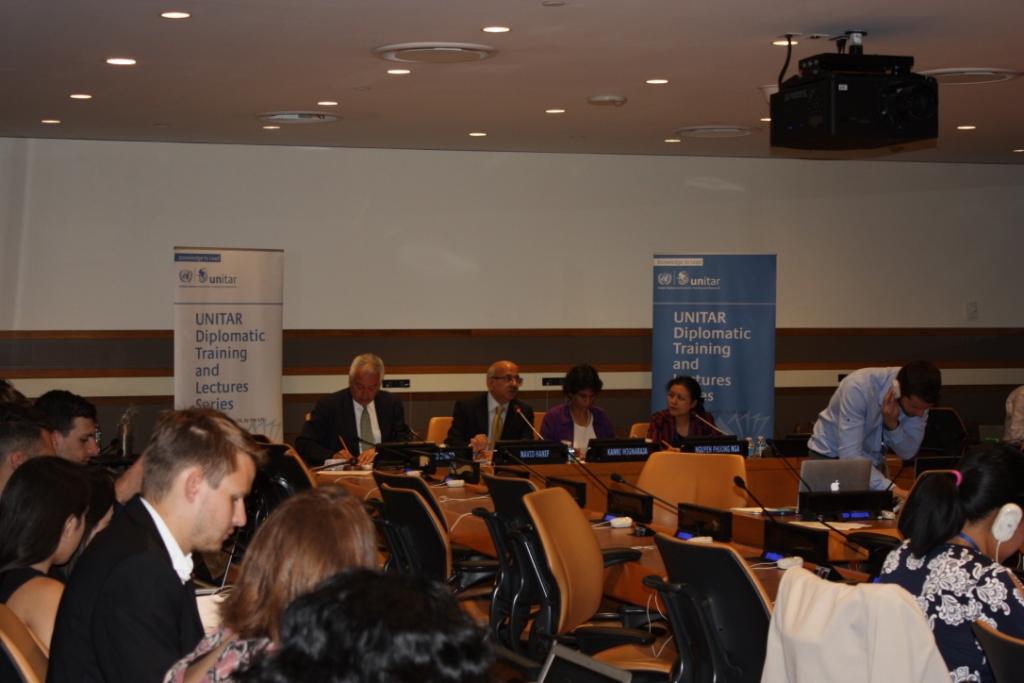 Nations (UN) Headquarters in partnership with the UN Department of Economic and Social Affairs (UN DESA). The module was attended by approximately 40 delegates from Permanent Missions to the United Nations. Mr. Marco A. Suazo, representing UNITAR’s New York Office, and Mr. Navid Hanif, the Director of the Department of Economic and Social Affairs in the Office for Economic and Social Council (ECOSOC) Support and Coordination, opened the seminar. He introduced the panelists and discussed the module’s topic; instruments in the field used to implement the Sustainable Development Goals (SDGs). Mr. Suazo voiced his appreciation for the generous support of the Permanent Mission of Switzerland to the United Nations in New York, which enabled free-of-charge participation.
Nations (UN) Headquarters in partnership with the UN Department of Economic and Social Affairs (UN DESA). The module was attended by approximately 40 delegates from Permanent Missions to the United Nations. Mr. Marco A. Suazo, representing UNITAR’s New York Office, and Mr. Navid Hanif, the Director of the Department of Economic and Social Affairs in the Office for Economic and Social Council (ECOSOC) Support and Coordination, opened the seminar. He introduced the panelists and discussed the module’s topic; instruments in the field used to implement the Sustainable Development Goals (SDGs). Mr. Suazo voiced his appreciation for the generous support of the Permanent Mission of Switzerland to the United Nations in New York, which enabled free-of-charge participation.
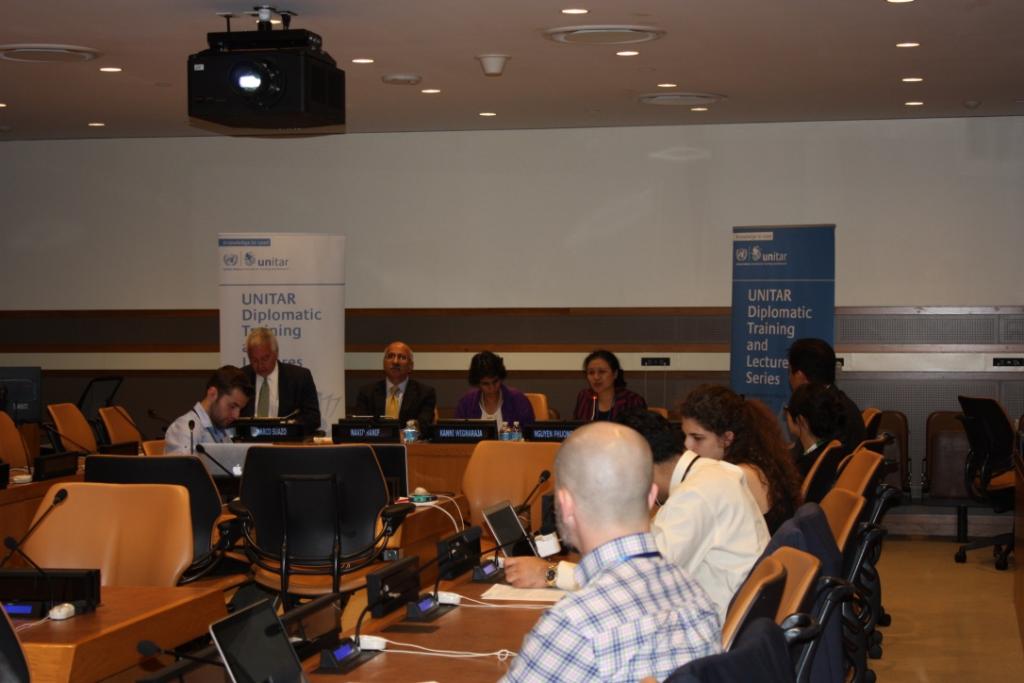 Ambassador Nguyen Phuong Nga, the Permanent Representative of the Permanent Mission of Viet Nam to the United Nations addressed the way that the Deliver as One (DaO) programme conducts itself in Viet Nam. She illustrated the history of the United Nations presence in Viet Nam leading into her presentation of the DaO initiative’s current state. She expressed the DaO initiative’s success as a result of several factors: the willingness of all UN agencies to house and work together, recognition by the national government that it could benefit from the UN’s presence as an information broker and source of technological, educational, and developmental assistance, and a desire by the national government to also deliver services to the people in a unified and efficient manner. These and other factors have led to increased efficiency in delivery of quality service and programmes addressing the needs of the people. The national government has also looked to the UN as an exemplar with respect to legislation initiatives and has passed several laws designed to protect and empower those who are vulnerable to exploitation and neglect. In response to various questions the Ambassador detailed the manner in which the national government has made sure to have access to DaO and has encouraged the development of increased coordination between regional and local level governments with nearby DaO personnel for the purpose of addressing increasingly localized and specific needs.
Ambassador Nguyen Phuong Nga, the Permanent Representative of the Permanent Mission of Viet Nam to the United Nations addressed the way that the Deliver as One (DaO) programme conducts itself in Viet Nam. She illustrated the history of the United Nations presence in Viet Nam leading into her presentation of the DaO initiative’s current state. She expressed the DaO initiative’s success as a result of several factors: the willingness of all UN agencies to house and work together, recognition by the national government that it could benefit from the UN’s presence as an information broker and source of technological, educational, and developmental assistance, and a desire by the national government to also deliver services to the people in a unified and efficient manner. These and other factors have led to increased efficiency in delivery of quality service and programmes addressing the needs of the people. The national government has also looked to the UN as an exemplar with respect to legislation initiatives and has passed several laws designed to protect and empower those who are vulnerable to exploitation and neglect. In response to various questions the Ambassador detailed the manner in which the national government has made sure to have access to DaO and has encouraged the development of increased coordination between regional and local level governments with nearby DaO personnel for the purpose of addressing increasingly localized and specific needs.
In the second half of the first session, the UN Development Operations Coordination Office (UNDOCO) Director Ms. Kanni Wignaraja focused on the DaO initiative as a whole. The DaO is merely a reflection of the way member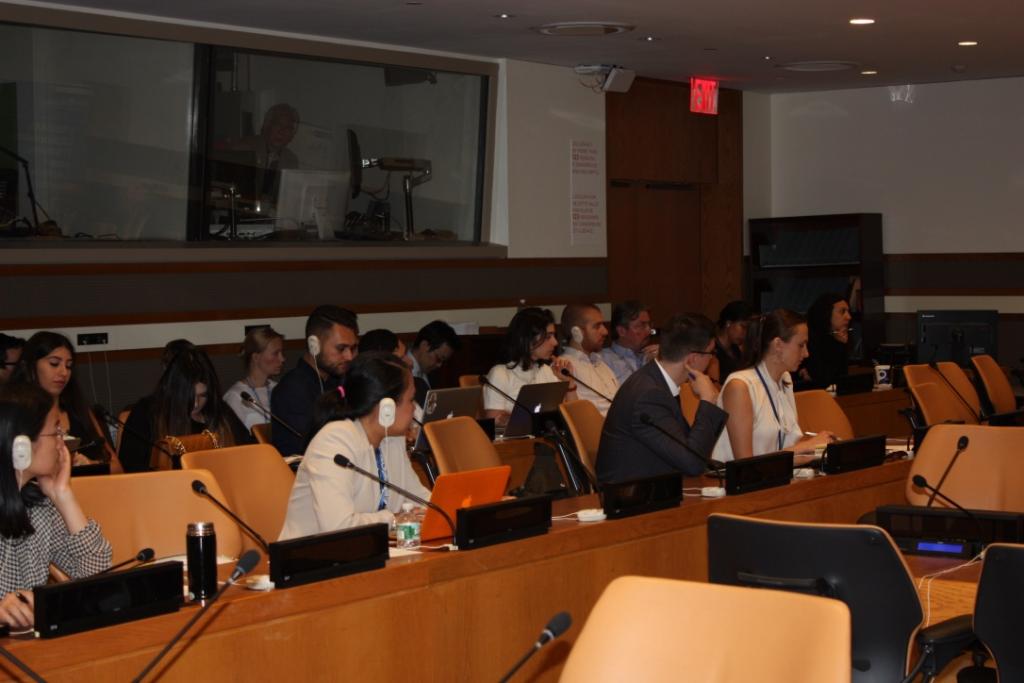 states want the UN to operate in their countries. The most effective instances of DaO are in countries that clearly state their desires and work with the UN to achieve them. She worked through the purpose of the Standard Operating Procedures (SoPs) and the effects they have on the DaO approach. In addition to the SoPs Ms. Wignaraja presented 6 principles that increase the effectiveness of the DaO approach: 1Government ownership of their people’s needs and coordination with the UN to meet those needs, 2Clarity of terminology, 3Accountability, 4Simplification and harmonization on the business side, 5Flexibility to respond to developing needs, and 6Empowerment of UN teams in the field to deliver. These principles cut down on waste and duplication and lead to transparency and trust. Ms. Wignaraja stressed the importance transformative leadership can have on the implementation of the SDGs and the goal-setting of the upcoming QCPR. In the question and answer (Q&A) portion Ms. Wignaraja fielded questions aimed at determining the best way to improve the DaO approach. Her answers addressed the difficulties of separate funding streams stalling coordination efforts, the unwillingness of some governments to engage with DaO even though they asked that the approach be implemented, and the slowness of change at the Headquarters level to effectively manage changing demands at the country and regional levels. To address these issues she focused on empowering Resident Coordinators (RCs) by providing them authority to, make decisions in their countries of operation, steer funding, draw on UN resources, allocate said resources, and be part of team performance reviews.
states want the UN to operate in their countries. The most effective instances of DaO are in countries that clearly state their desires and work with the UN to achieve them. She worked through the purpose of the Standard Operating Procedures (SoPs) and the effects they have on the DaO approach. In addition to the SoPs Ms. Wignaraja presented 6 principles that increase the effectiveness of the DaO approach: 1Government ownership of their people’s needs and coordination with the UN to meet those needs, 2Clarity of terminology, 3Accountability, 4Simplification and harmonization on the business side, 5Flexibility to respond to developing needs, and 6Empowerment of UN teams in the field to deliver. These principles cut down on waste and duplication and lead to transparency and trust. Ms. Wignaraja stressed the importance transformative leadership can have on the implementation of the SDGs and the goal-setting of the upcoming QCPR. In the question and answer (Q&A) portion Ms. Wignaraja fielded questions aimed at determining the best way to improve the DaO approach. Her answers addressed the difficulties of separate funding streams stalling coordination efforts, the unwillingness of some governments to engage with DaO even though they asked that the approach be implemented, and the slowness of change at the Headquarters level to effectively manage changing demands at the country and regional levels. To address these issues she focused on empowering Resident Coordinators (RCs) by providing them authority to, make decisions in their countries of operation, steer funding, draw on UN resources, allocate said resources, and be part of team performance reviews.
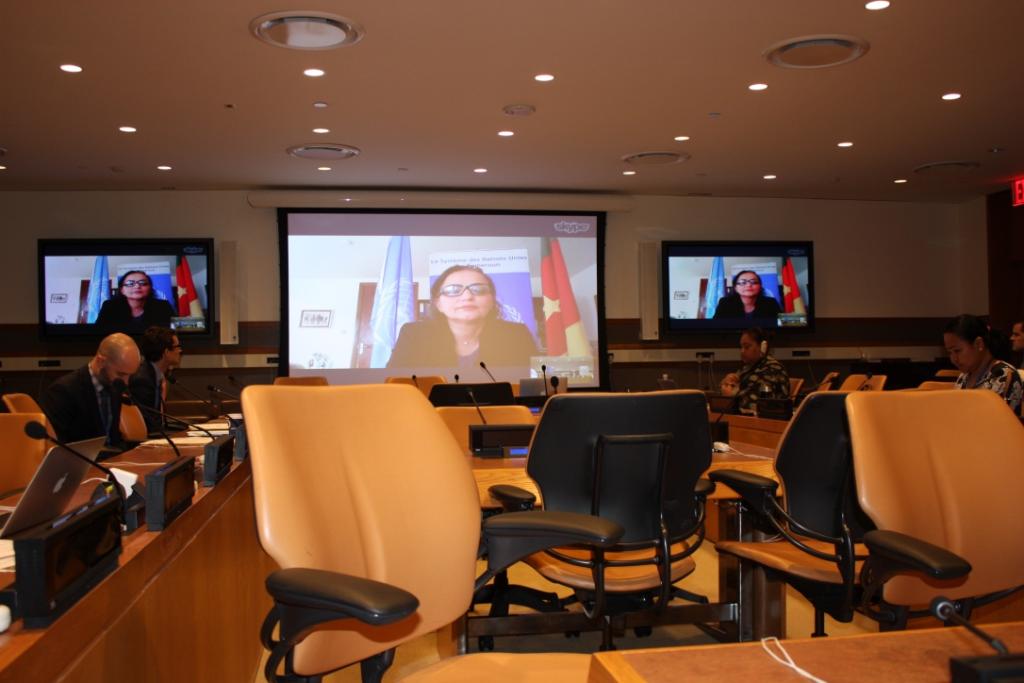 After a short break Ms. Najat Rochdi, the United Nations Resident Coordinator in the Republic of Cameroon spoke from experience about implementing Deliver as One on the ground in a member state. She spoke highly of the Standards of Procedure but acknowledged that 2-3 years are needed to fully transition to the DaO approach and even then, it takes practice to perfect. She stressed the comprehensive nature of implementing DaO, necessitating changes from every agency, program, and even report to reflect and further the unified approach. She explained that with this approach the Resident Coordinator gains increased leverage and credibility with donors. In addition to the RC having greater influence, the UN agencies benefit from free flowing information and experience across agency boundaries. Ms. Rochdi addressed some remaining needs for increased efficiency, namely, the bridging of the Humanitarian agencies and the development agencies, increased flexibility to deal with crises as they happen, and increased depth in reporting to the RC so that information flow is not stalled to the detriment of the DaO approach’s ability to meet needs. In response to questions regarding struggles the RCs must deal with Ms. Rochdi stated that agency willingness to join the DaO and predictable funding would eliminate huge frustrations for RCs worldwide.
After a short break Ms. Najat Rochdi, the United Nations Resident Coordinator in the Republic of Cameroon spoke from experience about implementing Deliver as One on the ground in a member state. She spoke highly of the Standards of Procedure but acknowledged that 2-3 years are needed to fully transition to the DaO approach and even then, it takes practice to perfect. She stressed the comprehensive nature of implementing DaO, necessitating changes from every agency, program, and even report to reflect and further the unified approach. She explained that with this approach the Resident Coordinator gains increased leverage and credibility with donors. In addition to the RC having greater influence, the UN agencies benefit from free flowing information and experience across agency boundaries. Ms. Rochdi addressed some remaining needs for increased efficiency, namely, the bridging of the Humanitarian agencies and the development agencies, increased flexibility to deal with crises as they happen, and increased depth in reporting to the RC so that information flow is not stalled to the detriment of the DaO approach’s ability to meet needs. In response to questions regarding struggles the RCs must deal with Ms. Rochdi stated that agency willingness to join the DaO and predictable funding would eliminate huge frustrations for RCs worldwide.
Mr. Christian Schörnich, an expert on business practices offered a different perspective to the discussion. He offered evidence to suggest that a variety of approaches will be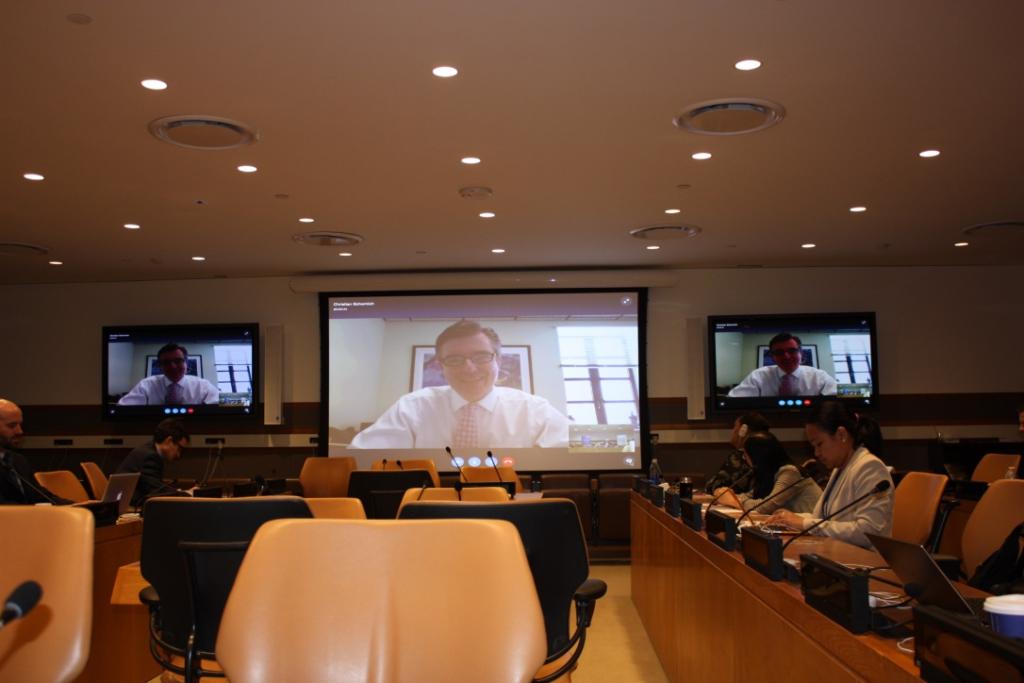 necessary as not all member states subscribe to the same methods of operation or have the same needs. He explained that Mutual recognition of policeis between agencies and ascribing to those when working through another agency seems to work well without necessitating a merging of principles and policies. He spoke highly of group procurement as the greatest way to reduce the costs of agency programs. Mr. Schörnich encouraged all present by reminding them that this is a relatively new approach to both UN presence in member states and UN business operations and thus progress would be naturally slow. Furthermore, the instruments for savings are in place and that means that as agencies are provided incentives to join in DaO, efficiency and savings will likely increase. Mr. Schörnich expressed that one stop shops, preferably regionally, can provide efficiency gains. In response to questions asking for greater depth Mr. Schörnich detailed the approaches of interagency rationalization and interagency harmonization, suggesting that they may be able to work in conjunction to bring about savings and efficiency gains.
necessary as not all member states subscribe to the same methods of operation or have the same needs. He explained that Mutual recognition of policeis between agencies and ascribing to those when working through another agency seems to work well without necessitating a merging of principles and policies. He spoke highly of group procurement as the greatest way to reduce the costs of agency programs. Mr. Schörnich encouraged all present by reminding them that this is a relatively new approach to both UN presence in member states and UN business operations and thus progress would be naturally slow. Furthermore, the instruments for savings are in place and that means that as agencies are provided incentives to join in DaO, efficiency and savings will likely increase. Mr. Schörnich expressed that one stop shops, preferably regionally, can provide efficiency gains. In response to questions asking for greater depth Mr. Schörnich detailed the approaches of interagency rationalization and interagency harmonization, suggesting that they may be able to work in conjunction to bring about savings and efficiency gains.
To close the module Mr. Navid Hanif Asked the participants to view the upcoming QCPR not as the next QCPR, but as the first of three QCPRs that will lead to the achievement of the SDGs. He also presented the 3 I’s Inclusion, Integration, and Innovation, and spoke to his hopes for their implementation at the policy level.
Photos: Panelists, hosts, and participants

